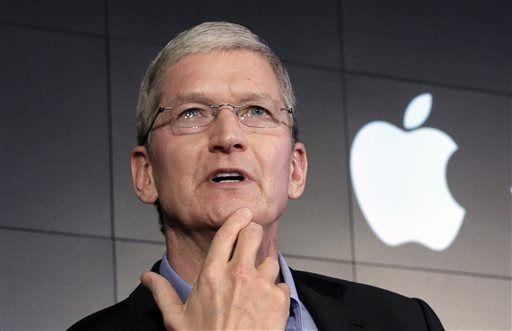“Hello. It’s me,” the United States government howls to Apple as it prepares to violate the constitutional rights of nearly every American.
On Tuesday, a California judge ordered Apple to fully assist the FBI with its efforts to unlock an iPhone used by one of the terrorists involved in the San Bernardino assault.
Authorities couldn’t unlock the iPhone and feared accidentally erasing the iPhone due to a security feature of Apple’s.
The security feature allows iOS devices to wipe themselves after someone enters the wrong code 10 times. Federal authorities understandably would want to avoid doing this.
In the order, the judge demanded Apple to design a special software to act as a master key to unlock the iPhone for situations like this.
In 2014, Apple and Google updated their software to include full disk encryption, making it impossible for the companies to unlock their own products. In order to unlock the smartphone, the tech giant would need to design a new update of their software to include a “back door” for the government to use.
The information on the iPhone could potentially provide vital evidence revealing how Syed Rizwan Farook and his wife orchestrated and carried out the shooting that killed 14 people in December.
But what if it doesn’t?
If I was a terrorist, I surely wouldn’t be stupid enough to store incriminating evidence on my personal cell phone, but that’s just a thought.
Apple’s CEO, Tim Cook, released a lengthy statement to the company’s website Wednesday stating its intentions to challenge the order due to potentially violating the privacy of millions of consumers using its products.
“The FBI may use different words to describe this tool, but make no mistake: Building a version of iOS that bypasses security in this way would undeniably create a back door,” Cook said in his statement.
Cook’s fear is logical. If Apple complied with the request, the government could unlock any encrypted device they wanted–regardless of whether it has permission to do so.
Users could have their data breached, their phones’ cameras and microphones enabled without their permission, their pictures and locations tracked.
Yes, government officials say this would be a one-time thing, but c’mon! I’m sure they would continuously come up with reasons to use the software if Apple created it.
Imagine if terrorists got a hold on the technology. They’d be able to use this software to plan their attacks.
Regardless of whether a master key to smartphones violates the rights of people around the world, it poses a threat to global security.
Some risks are too great, and the government should respect Apple’s wishes.
If the government forces Apple to create this software, you can bet there’s going to be bad blood. I, along with millions of other individuals, would prefer it if the government couldn’t peek into my endless collection of Taylor Swift GIFs.
John Gavin Harp is a 20-year-old mass communication junior from St. Francisville, Louisiana.
OPINION: Judicial order against Apple violates privacy of millions
February 17, 2016

FILE – In this April 30, 2015, file photo, Apple CEO Tim Cook responds to a question during a news conference at IBM Watson headquarters, in New York. Cook said his company will resist a federal magistrate’s order to hack its own users in connection with the investigation of the San Bernardino, Calif., shootings. In a statement posted early Wednesday, Feb. 17, 2016, on the company’s website, Cook argued that such a move would undermine encryption by creating a backdoor that could potentially be used on other future devices. (AP Photo/Richard Drew, File)
More to Discover












